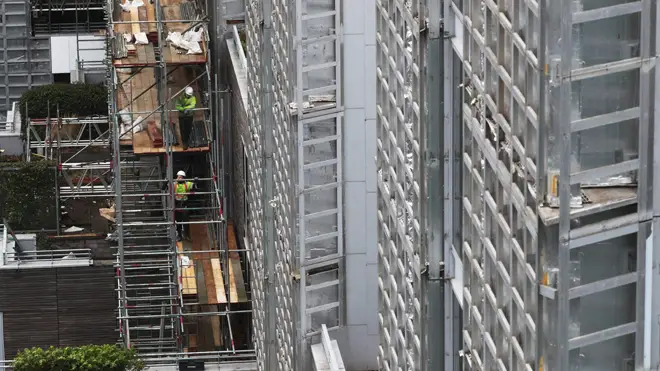
Lewis Goodall 10am - 12pm
1 February 2021, 11:34 | Updated: 1 February 2021, 13:14

Some may raise an eyebrow at the fact that Australia watched the Grenfell Tower disaster, and set up a cladding task force just three weeks later.
Here in the UK meanwhile; three and a half years after 72 people lost their lives in the tragedy, the Opposition have only just suggested it as an idea.
So what did Australia do?
The 2017 Victorian state-wide programme launched an immediate audit of all relevant apartment blocks, schools, hospitals, care homes hotels and student accommodation.
READ MORE: Cladding crisis: Labour tells ministers to 'get a grip'
They worked out which had fire-safety problems and flammable cladding, and then decided which of those were the most dangerous, and prioritised works accordingly.
They also brought in a building-levy on the construction companies, to pay for the work by taxing future developments.
Here in the UK meanwhile, we still have no idea how many residential buildings are actually unsafe, while the Government’s £1.6bn remediation fund has been criticised for being distributed on a “first come, first served” basis.
Today’s debate is a huge, symbolic, step forward for cladding campaigners, with Labour now fully throwing their weight behind solving this crisis.
But there’s also little this can achieve on its own, as it is a non-binding vote that the Government can choose to ignore.
Politically, it’s designed to put pressure on Tory backbenchers, especially those with high numbers of constituents caught up in this crisis, who will remember how their MP voted come the next election.
It’s pretty clear then, that one of the main things to look out for today, is the strength of feeling from these MPs.
Dozens of Conservatives have already indicated in a rebel-amendment to the Fire Safety Bill, that they now support protecting leaseholders from paying the costs of remediation.
The Government’s line, meanwhile, is only that it wants to protect these flat owners from costs “wherever possible.”

Cladding crisis: Caller in unsellable home backs Labour's task force
Then, there are the ‘six key demands’ from Labour.
These broadly align with what campaigners have been calling for, for months, but there’s a lack of detail so far about how some of this could be achieved.
1. Immediate up-front funding for removing deadly cladding and other urgent fire safety work
2. Protecting leaseholders and taxpayers by pursuing those responsible for the cladding scandal for costs
3. A new, legally enforceable 2022 deadline to make homes safe
4. Legislation to protect residents from costs
5. Getting the market moving by ensuring affected residents can sell and re-mortgage
6. Stamping out rogue builders by reforming the sector
On number one for example. The Government has already put up £1.6 billion pounds to remove dangerous cladding, but the suggested cost of fixing all these buildings is thought to be at least £15 billion.
Labour hasn’t come up with a figure here, so it’s unclear what their criteria for paying up would be.
Number five, meanwhile, is actually reliant on lenders; flat sales have ground to a halt because banks aren’t willing to take the risk by offering mortgages on potentially flammable flats.
Something significant would have to change first before they’re prepared to reverse that decision.
And, number six sounds easy, but as the Grenfell Inquiry has shown these issues run deep, and there is no quick fix.
While we need to remember, many dangerous cladded buildings weren’t built by ‘rogue builders,’ but huge, multi-million pound firms, still building and operating today.